Emily Stratton's work appears as the cover image of Theologies of American Exceptionalism.
EXHIBIT DESCRIPTION
Earlier in 2020, in conjunction with the release of the open access digital volume of Theologies of American Exceptionalism, ed. by Winni Fallers Sullivan and Elizabeth Shakman Hurd, the Center for Religion and the Human hosted a small exhibit featuring some of my photographs of “America”-centric images common in urban Ghana. That exhibit challenged viewers to contemplate what kind of work “America”-centric visual culture may be doing in the country. It also suggested that viewers consider such images as discursive prompts, as fodder for conceptualizing what “America” is and what relationships—real, imagined, and desired—it has, and ought to have, to Ghana(ians). At their core, these challenges are examples of the kind of theological inquiry, the kind of thinking America anew, that the essays in Theologies challenge their readers to do.
In anticipation of the volume's upcoming paperback edition, I have prepared a second exhibit. Like the volume’s essayists who explore Khomeini’s “Last Will and Testament,” techno-optimism, the Great American Novel, judicial opinions, and more, I too find unconventionally religious material particularly productive for theological inquiry. My photos of anything from neighborhood pubs to barber shops, minibus upholstery, and vehicle decals in Ghana are yet another way of “making visible the complex and deeply ambivalent religious logics, both implicit and explicit, at work in the various discourses of American exceptionalism” around the world today (Theologies, 4).
Whatever “America” may be—to Ghanaians, to anyone else—it is arguably a religious project. And its contributors hail from all around the world, past, present, and future.
In anticipation of the volume's upcoming paperback edition, I have prepared a second exhibit. Like the volume’s essayists who explore Khomeini’s “Last Will and Testament,” techno-optimism, the Great American Novel, judicial opinions, and more, I too find unconventionally religious material particularly productive for theological inquiry. My photos of anything from neighborhood pubs to barber shops, minibus upholstery, and vehicle decals in Ghana are yet another way of “making visible the complex and deeply ambivalent religious logics, both implicit and explicit, at work in the various discourses of American exceptionalism” around the world today (Theologies, 4).
Whatever “America” may be—to Ghanaians, to anyone else—it is arguably a religious project. And its contributors hail from all around the world, past, present, and future.
-Emily Stratton
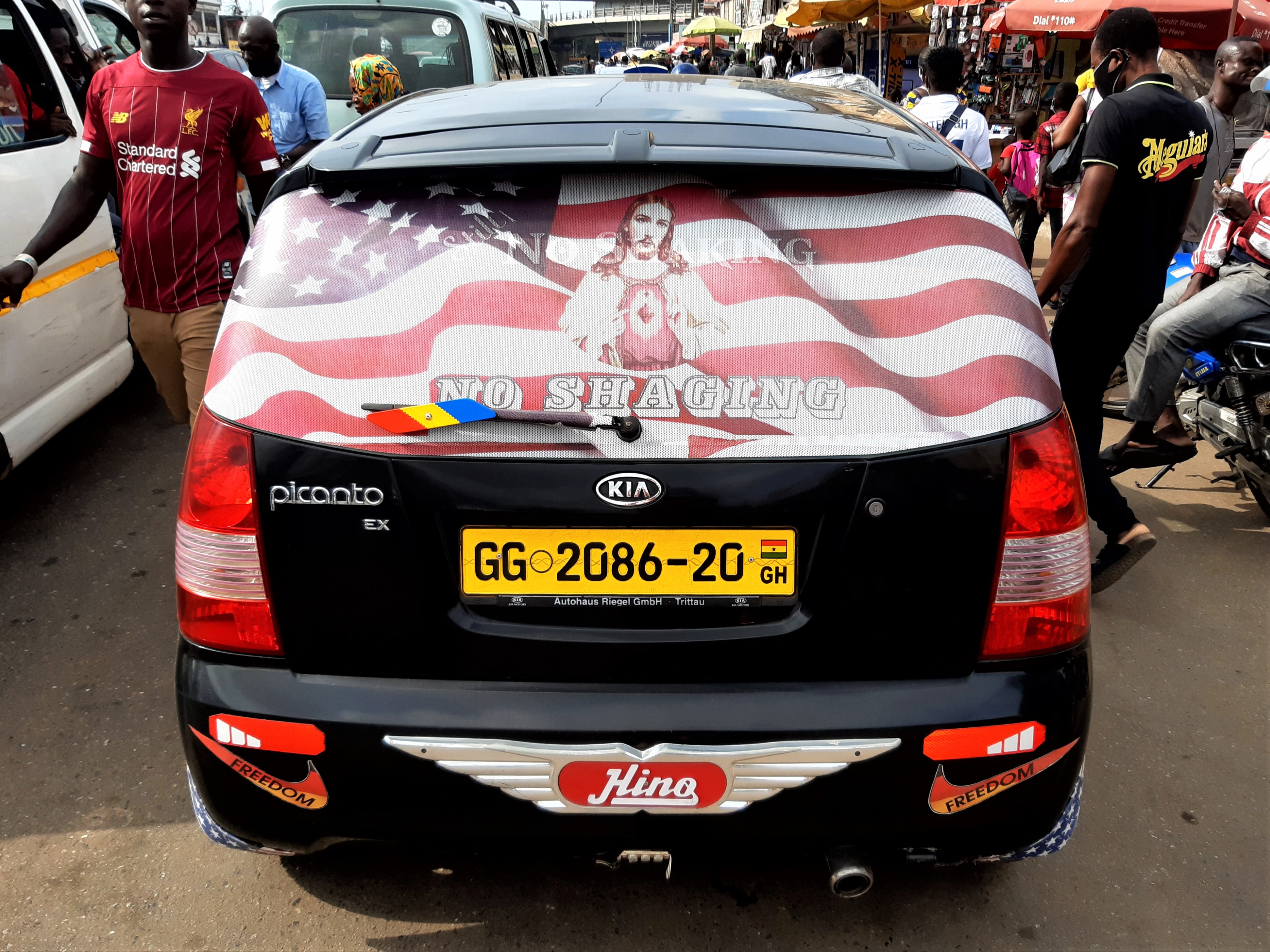
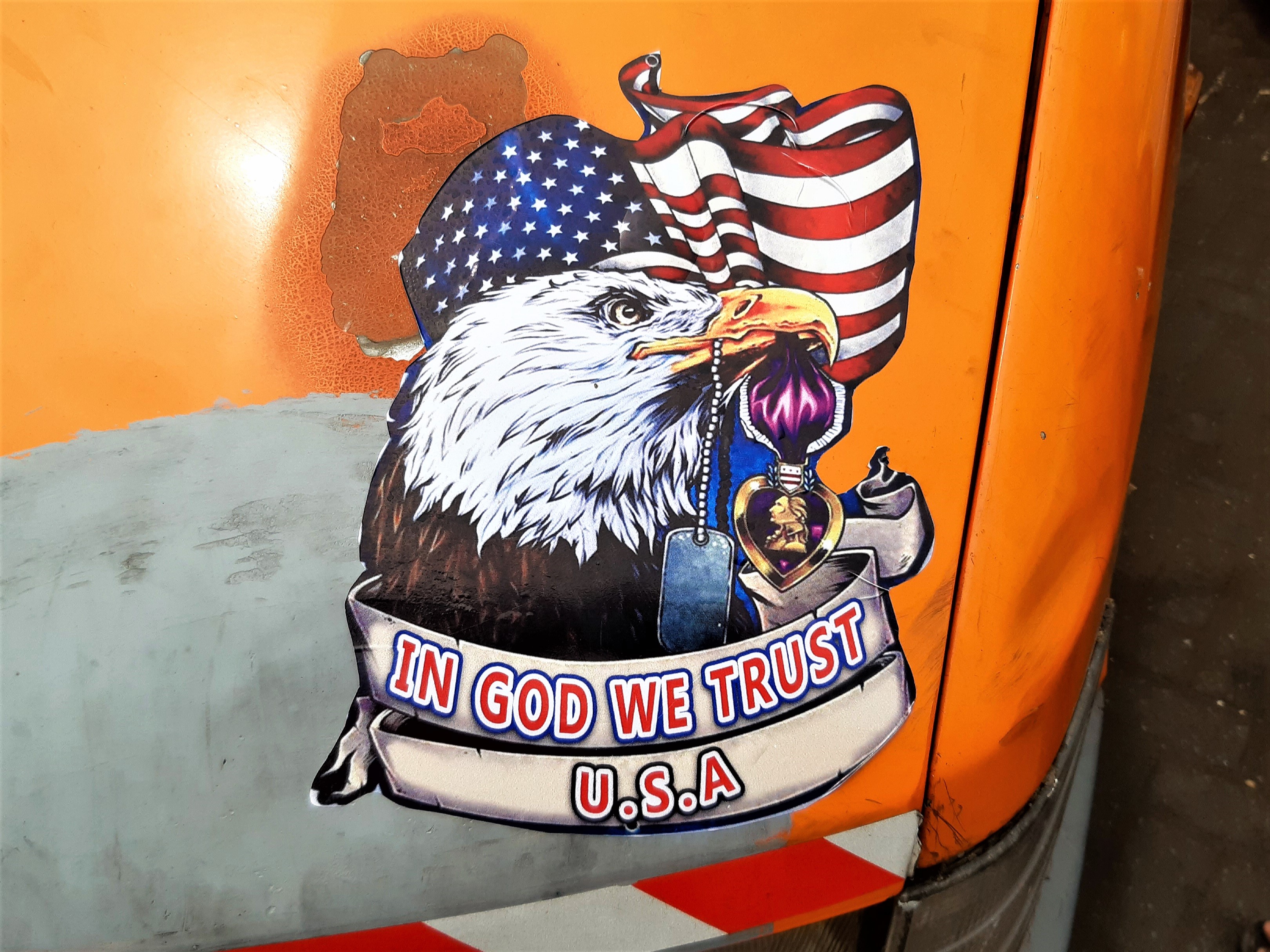
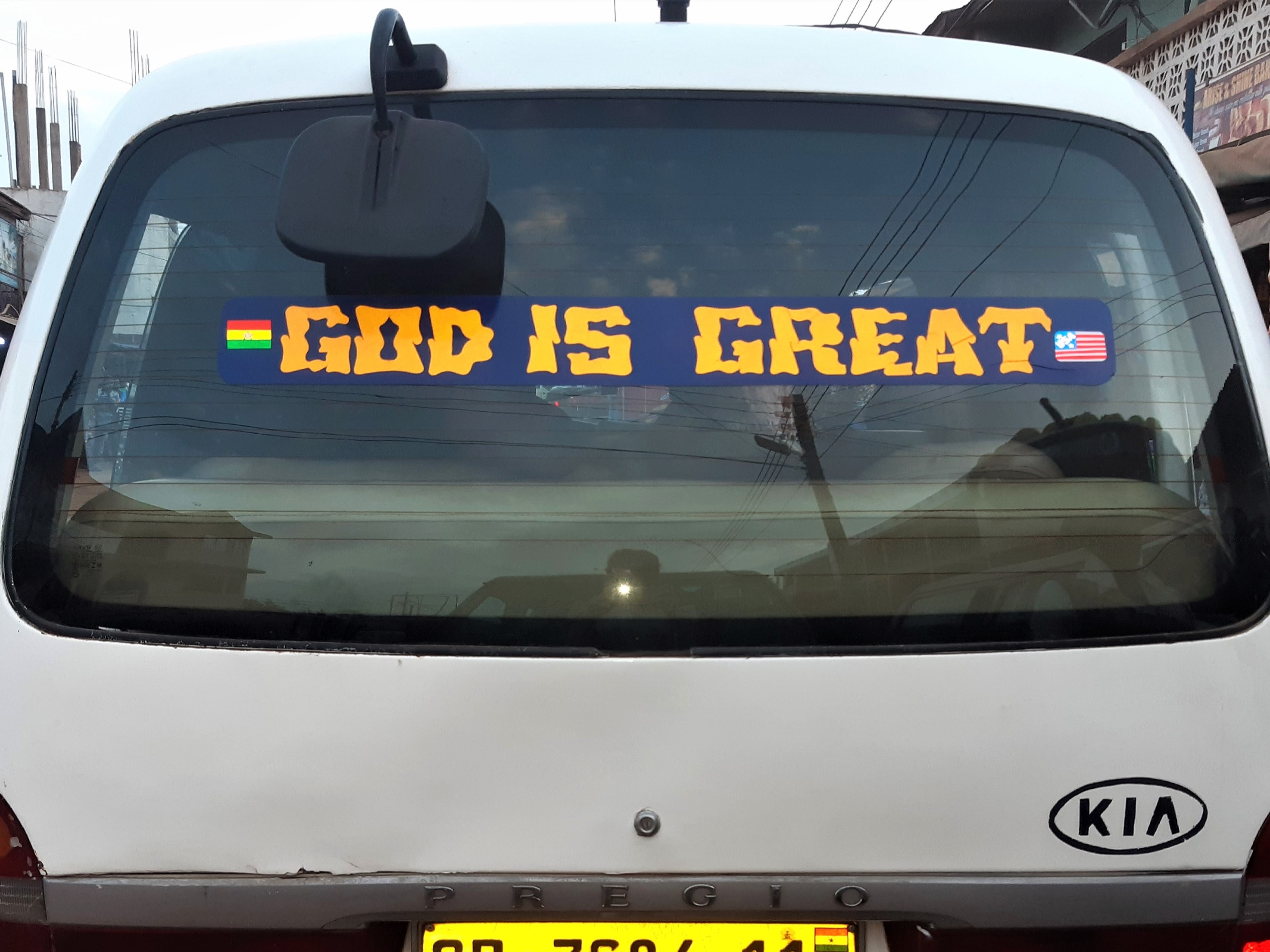
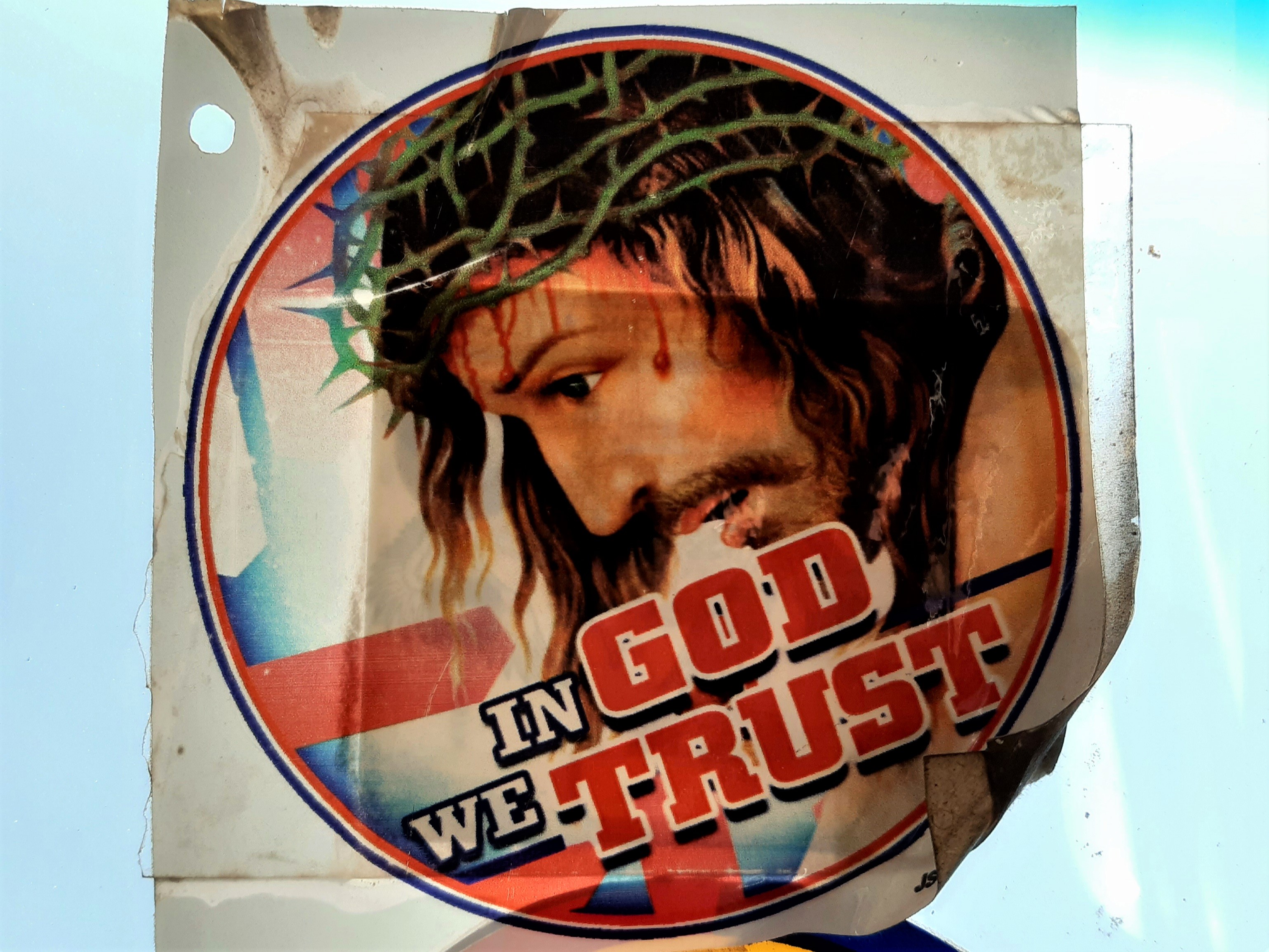
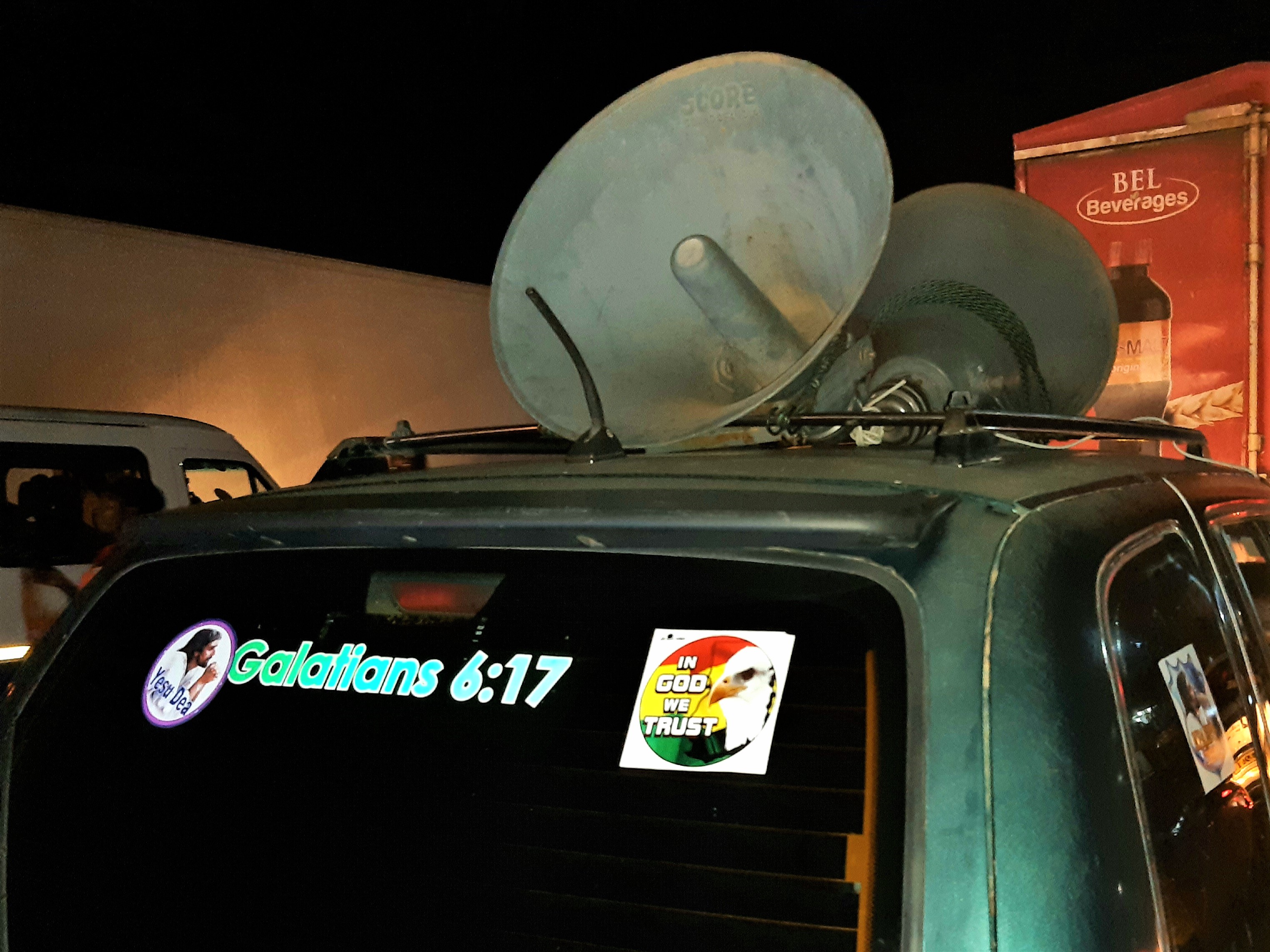
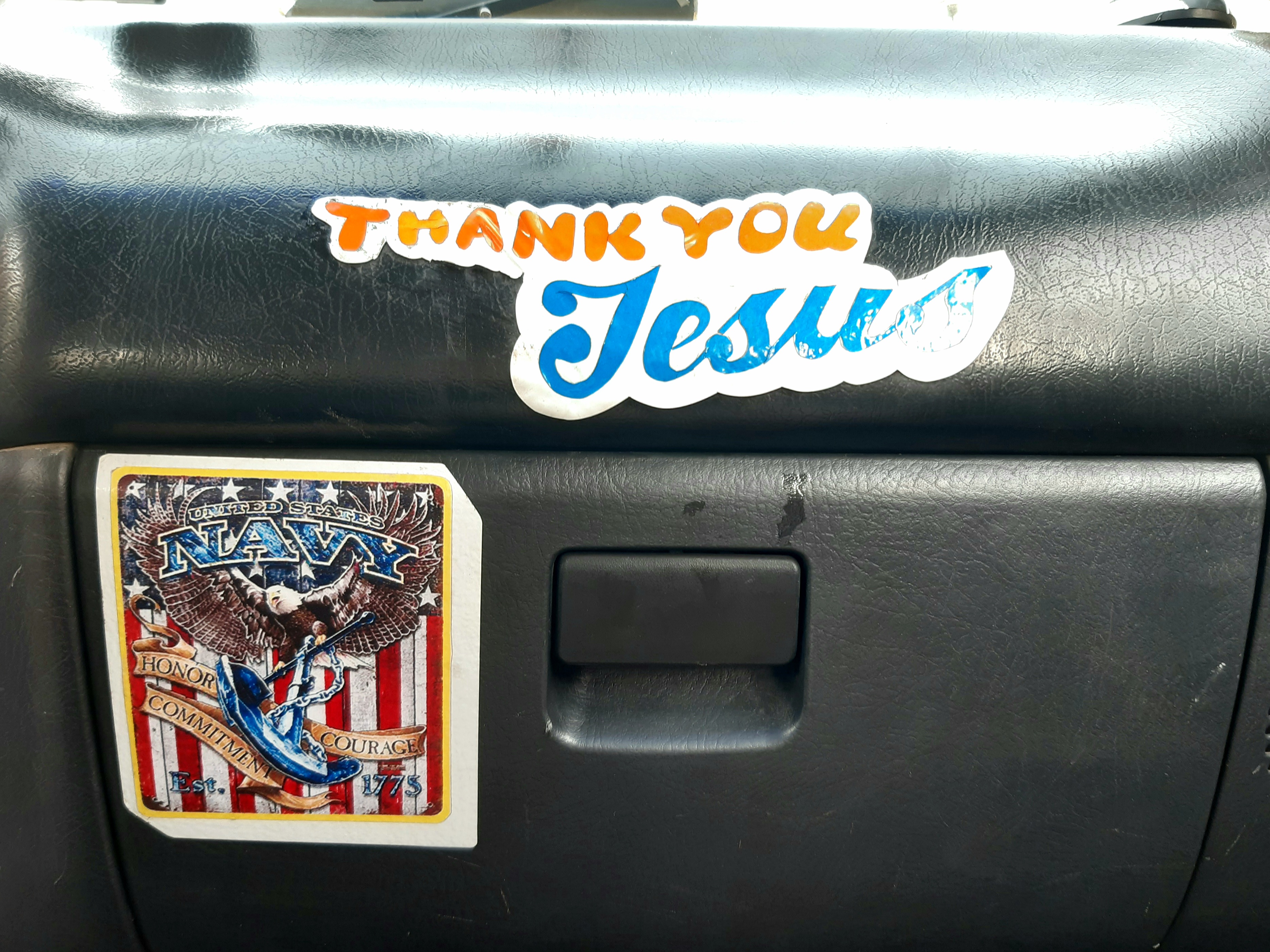
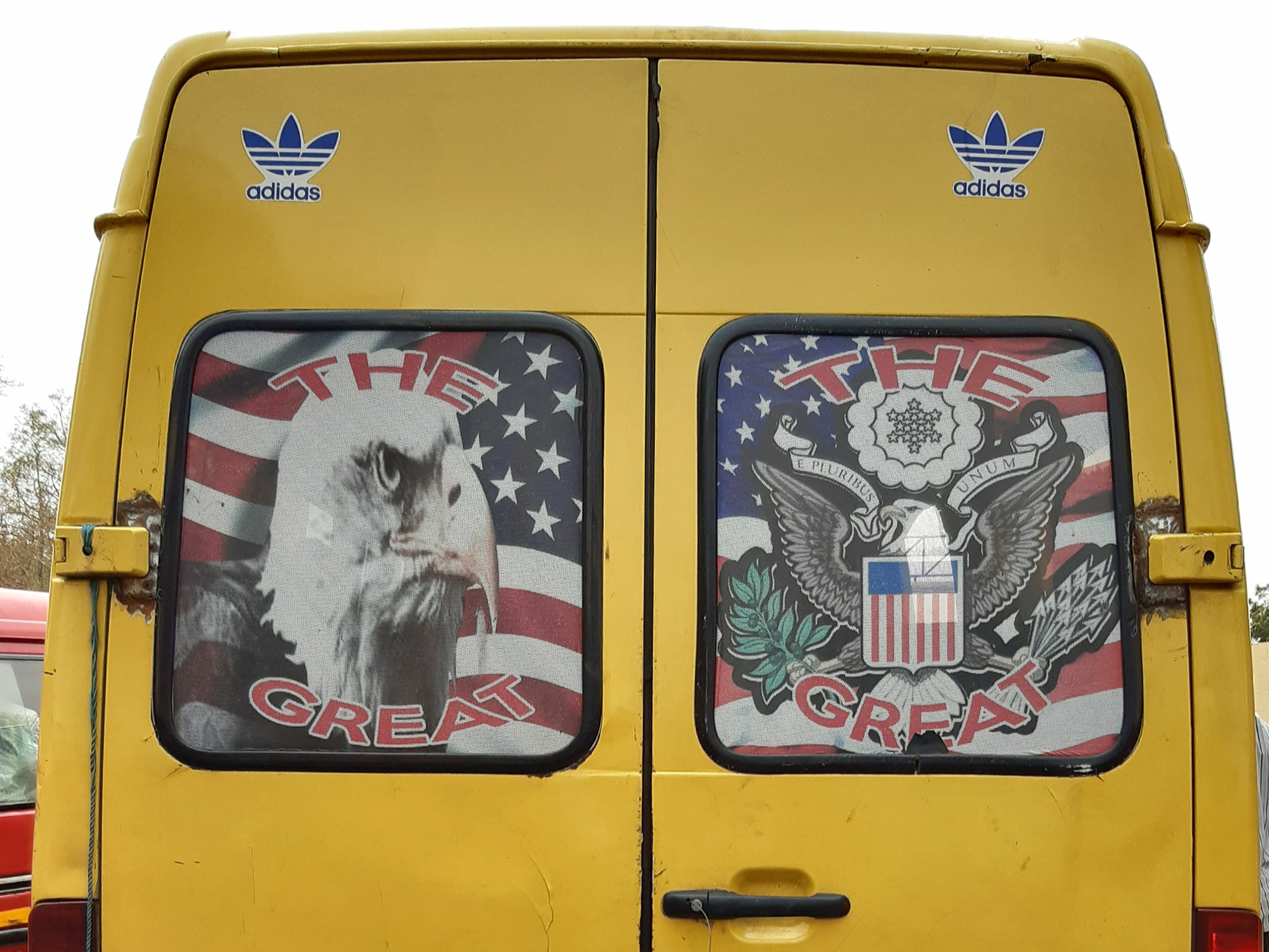
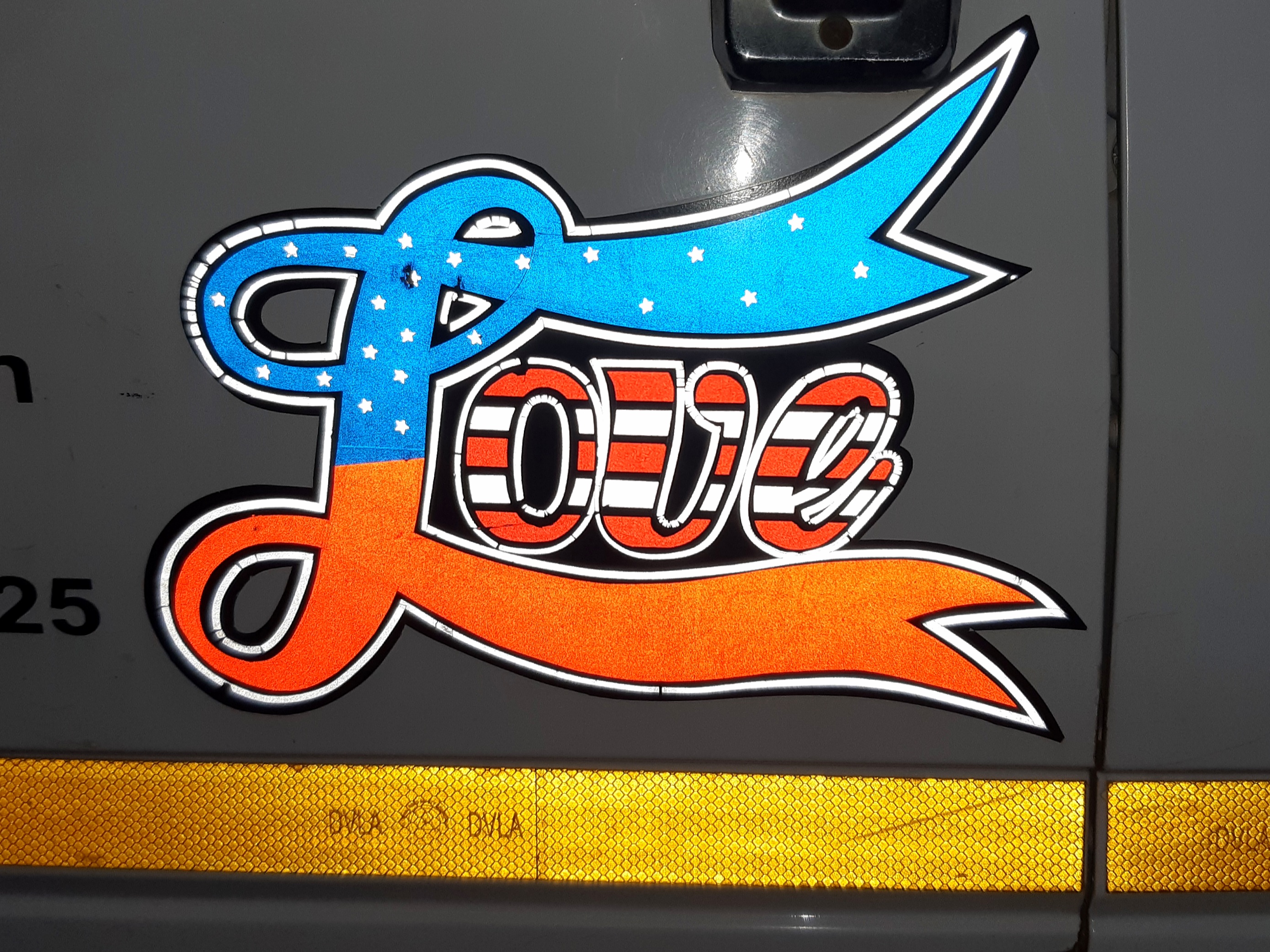
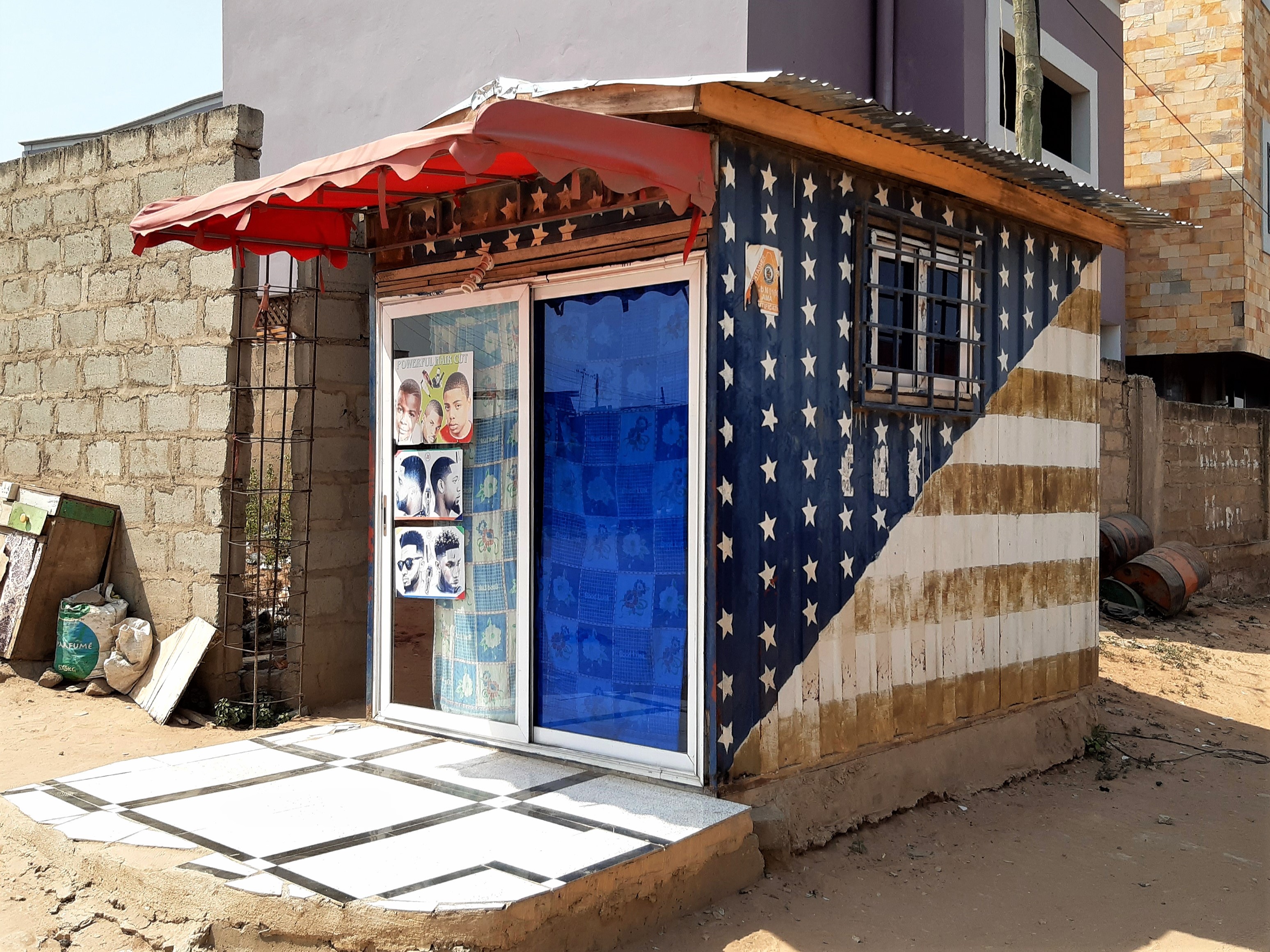
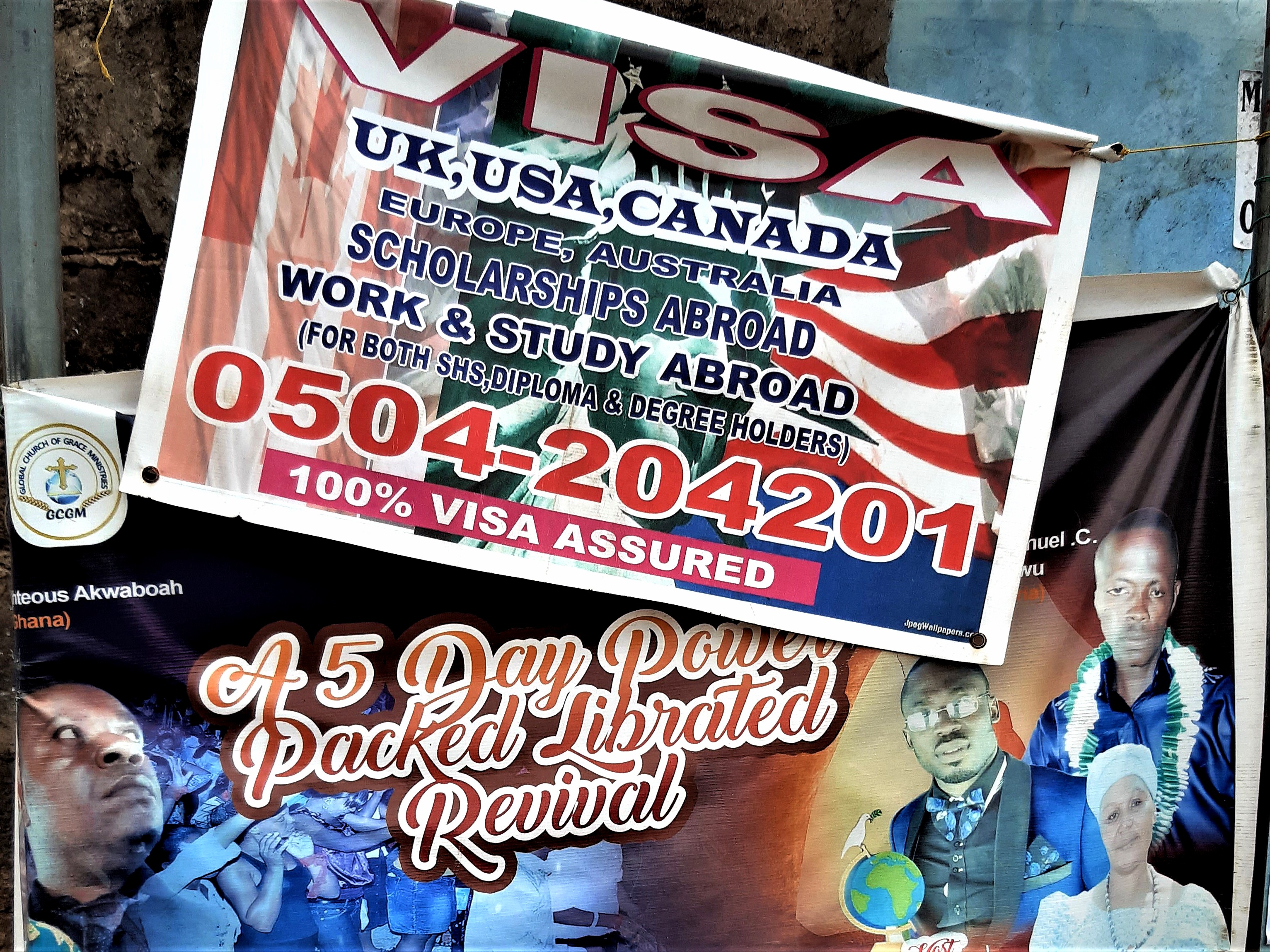
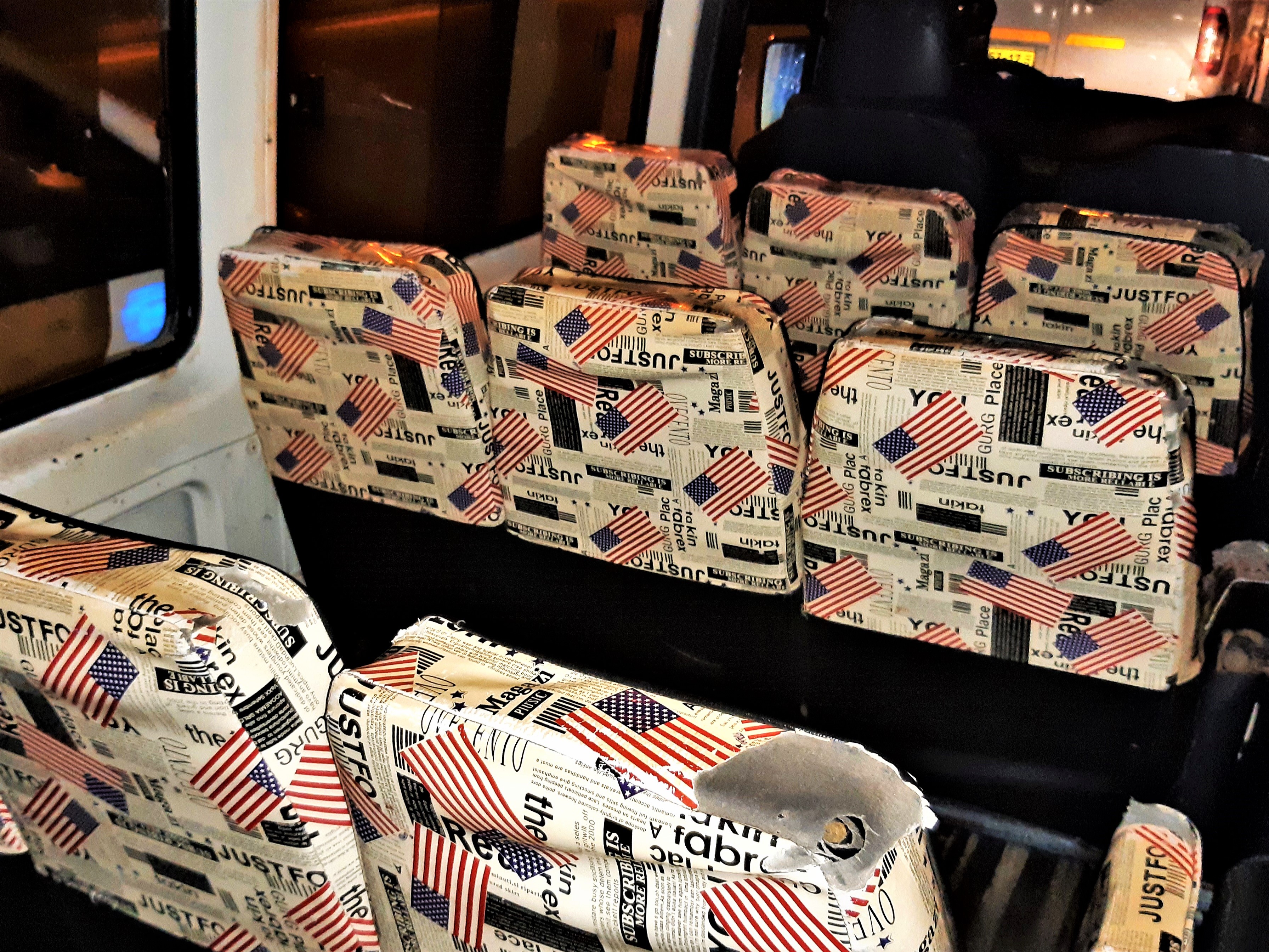
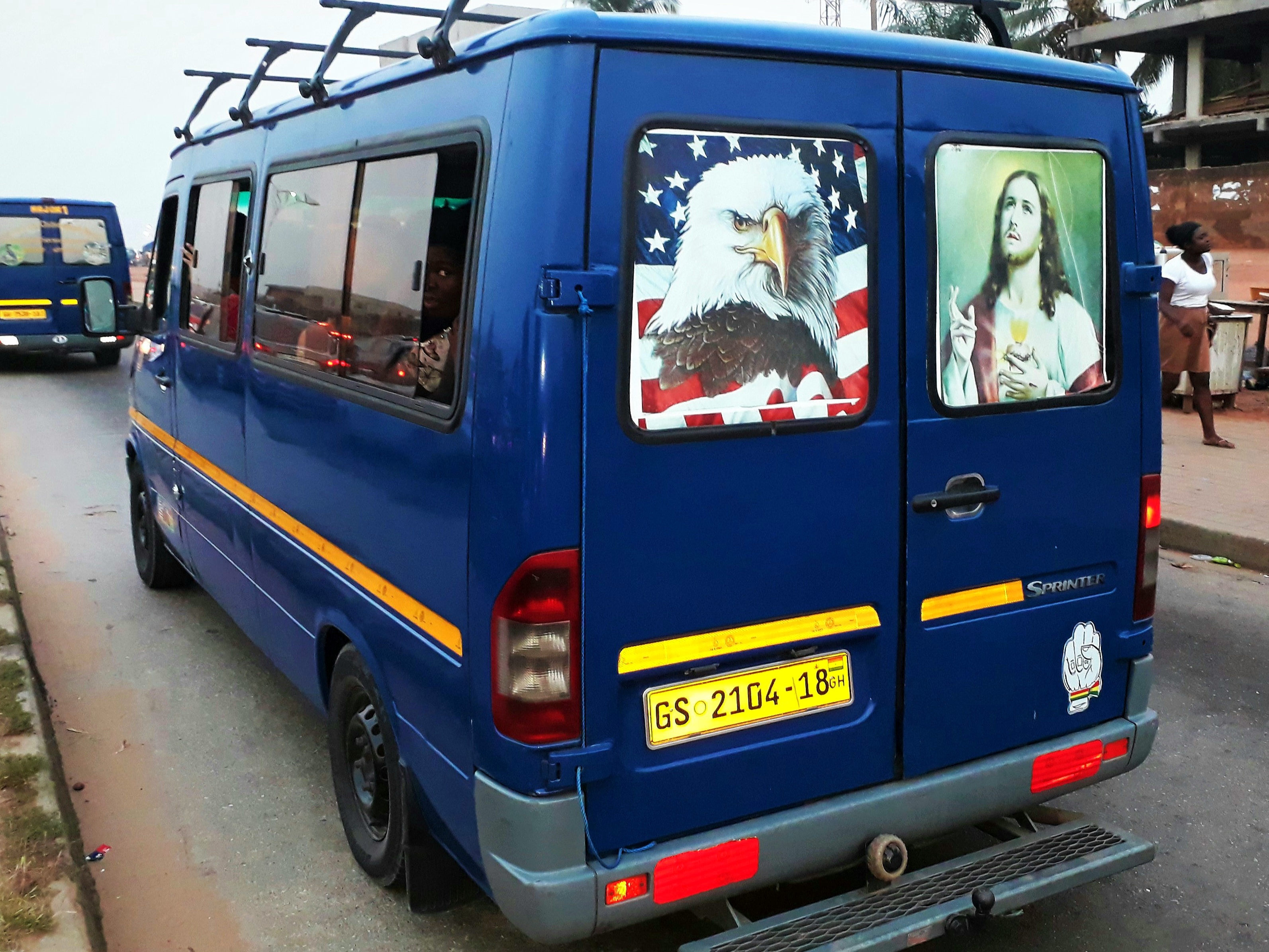
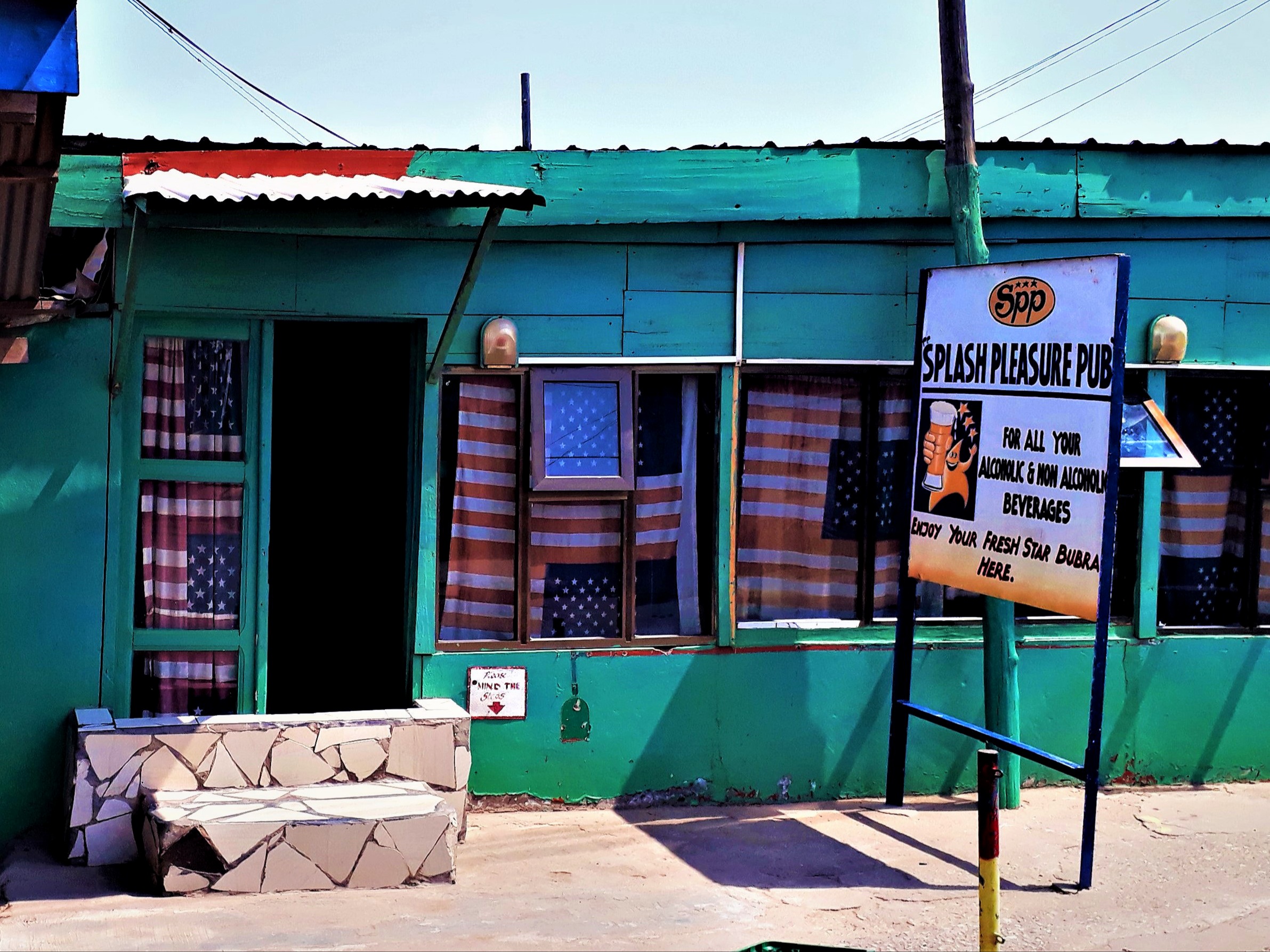
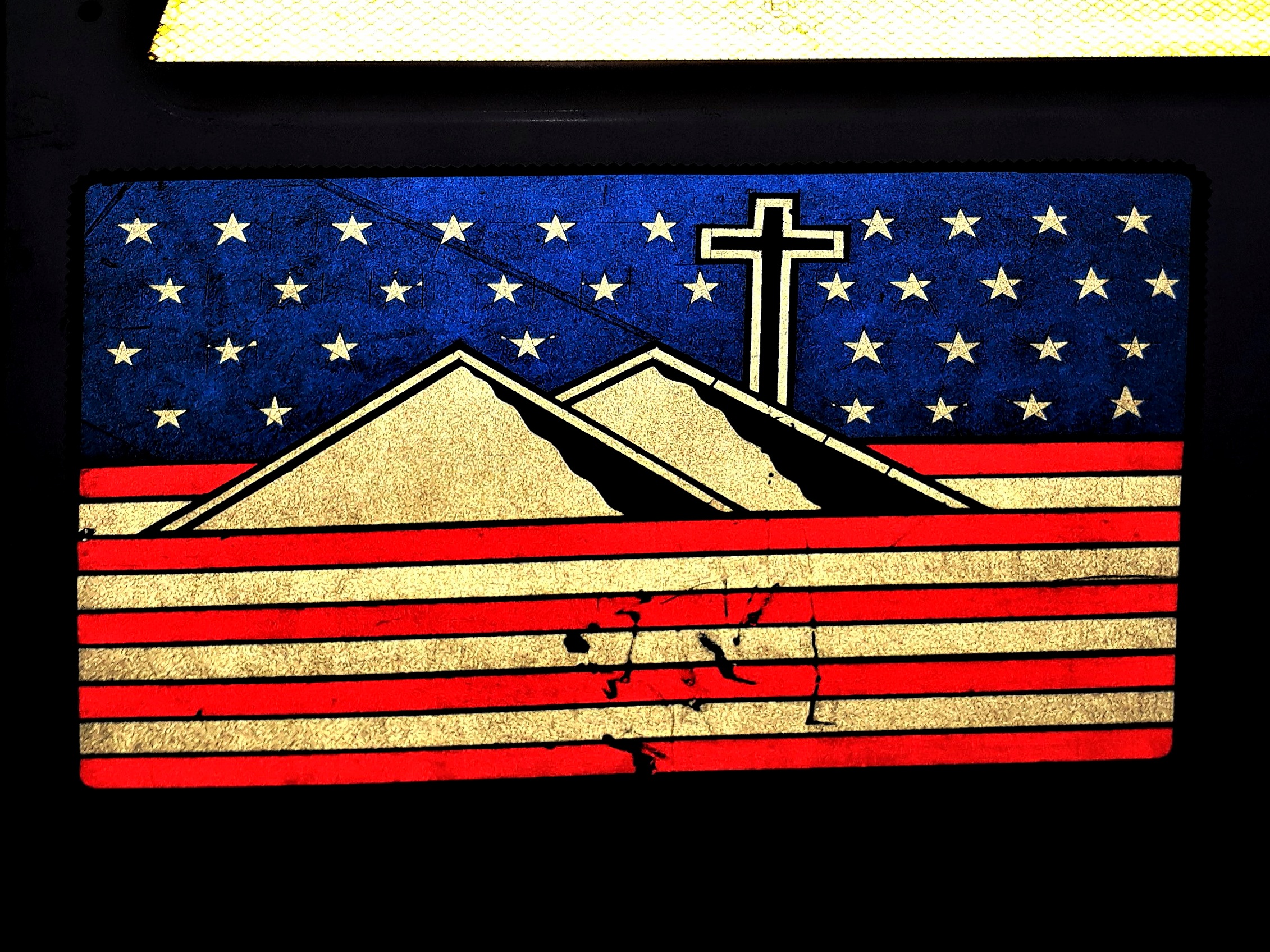
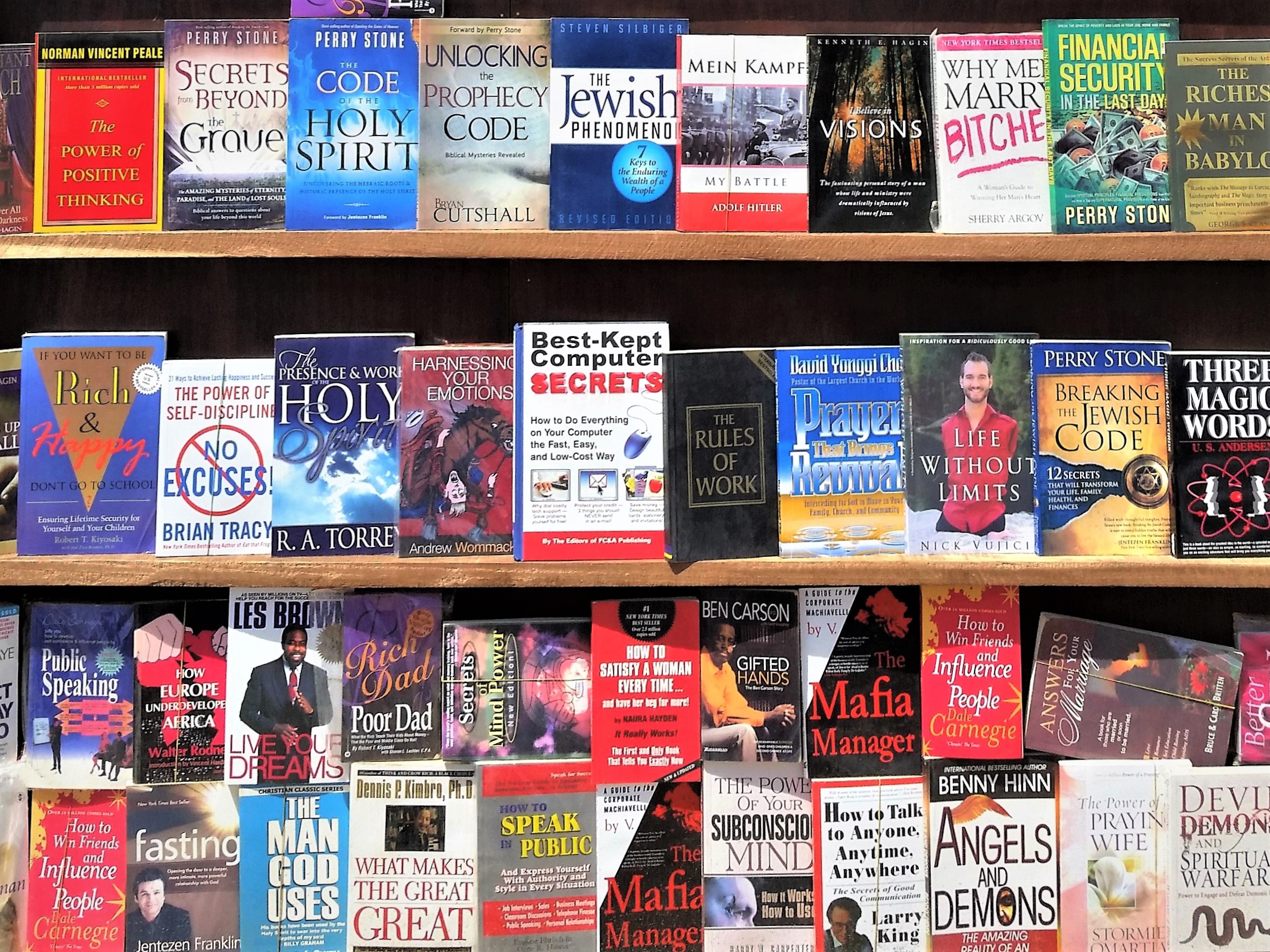
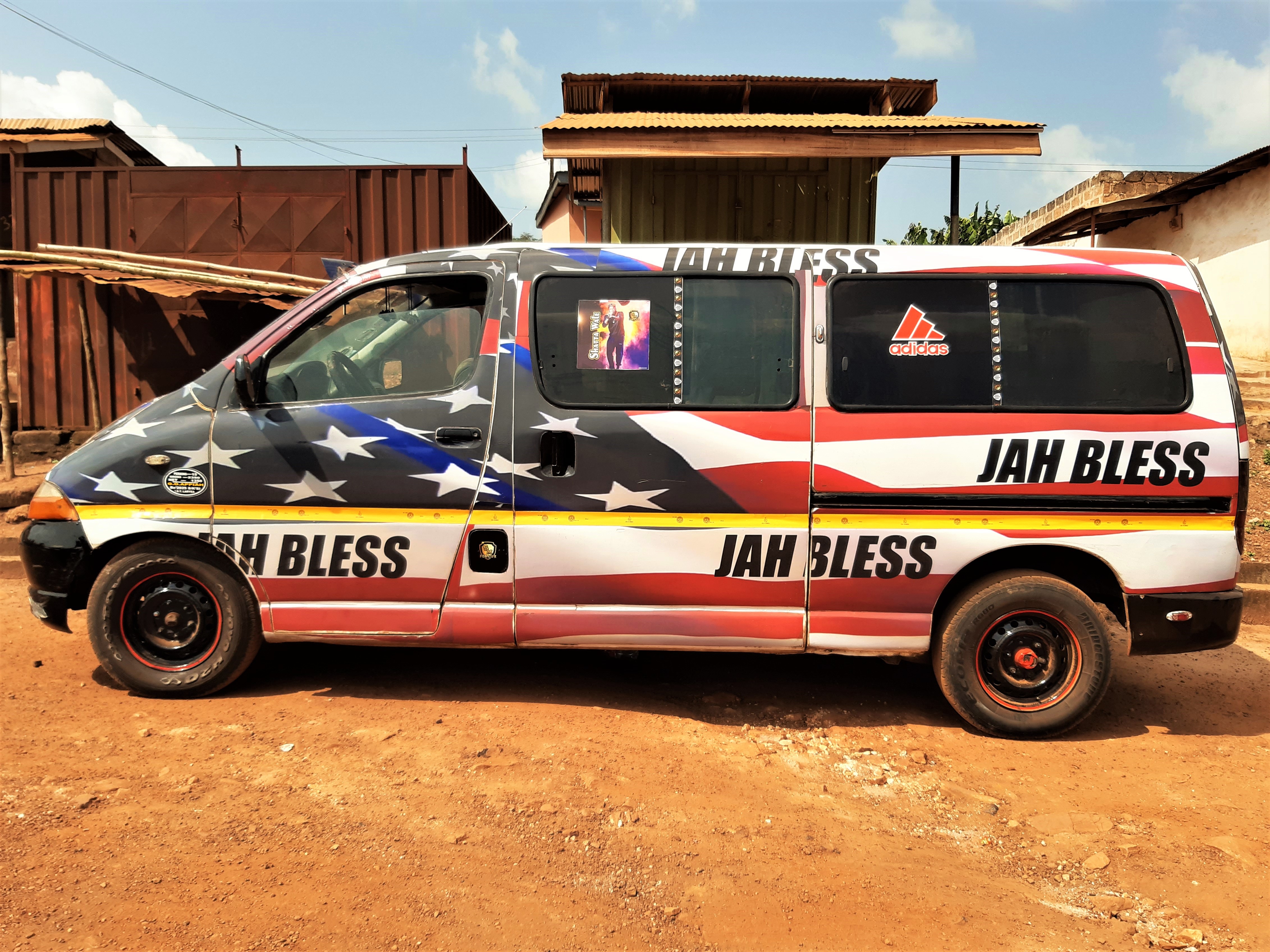
PHOTOGRAPHER BIO
Emily Stratton is a Ph.D. Candidate in the Religious Studies Department and an Associate Instructor in the African Studies Program at Indiana University.

